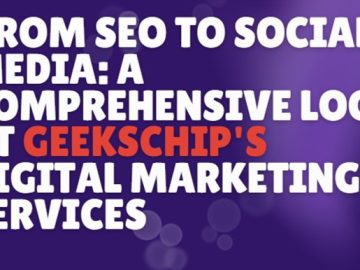By Siddharth Pai,
As generative artificial intelligence (AI) becomes increasingly embedded in our lives, how we search for information, engage with brands, and form opinions are rapidly changing. Search engines like Google, Bing, and DuckDuckGo, once the undisputed gatekeepers of the digital world, are no longer the sole arbiters of information access. AI tools such as ChatGPT, Gemini, and others are poised to take centre stage, offering a more conversational and intuitive approach to information retrieval.
This shift has given rise to a new industry: AI optimisation (AIO), which is quickly becoming as critical as search engine optimisation (SEO) has been over the past two decades. In fact, Fortune magazine says AIO may outshadow the $68-billion SEO industry in a very period (bit.ly/4dSRSel). Companies, aware of their online presence and concerned about how AI chatbots present their digital personas, are now looking toward AIO services to manage their AI-based reputations. But what exactly is AIO, and how can businesses and individuals harness its potential to stay ahead in the age of AI-driven searches?
Historically, SEO has been the go-to strategy for anyone looking to improve their visibility online. By tweaking websites, creating keyword-rich content, and building authoritative backlinks, businesses could climb the ranks of search engines. However, GenAI introduces a new paradigm where answers are provided in natural language, often bypassing the need for traditional search results. AI tools now present users with a single, synthesised response. Users, instead of browsing dozens of links to find answers, will get one, maybe two, responses — likely accompanied by an explanation or opinion — directly from the AI. This raises a new challenge: How can individuals and companies ensure that AI tools present them in the best possible light?
Just as SEO ensures your website appears prominently in search engine results, AIO focuses on how AI systems retrieve and present information about a subject — be it a company, product, or person. AIO involves shaping how AI systems, such as chatbots or virtual assistants, understand and generate responses about specific topics. Since these AI tools rely heavily on vast data sets — from websites and databases to social media profiles and news articles — AIO aims to influence which data is picked up and how it is interpreted. The goal is to ensure AI-generated responses are accurate, relevant, and aligned with the image individuals or companies want to project.
In this light, a few things become more important, such as paying attention to AI’s training data sets, content creation, correction of inaccurate data, and shaping perceptions in a structured manner. GenAI models draw from an array of sources — everything from news sites to social media comments, and even obscure blog posts. In some cases, this vast data set can pull up less-than-flattering or outdated information. With AIO, companies can take steps to curate their digital footprint more actively.
Much like SEO, creating authoritative, relevant, and high-quality content helps ensure that AI pulls from the right sources. Whether through blogs, press releases, or social media posts, constantly generating positive and accurate content increases the likelihood that AI chatbots will reflect your preferred narrative. Also, if incorrect or misleading information is spreading online, AIO services can help flag and correct it. For example, contacting websites to update or remove incorrect data or building a content strategy that pushes the correct information to the forefront.
GenAI relies heavily on structured data — such as information it gleans from corporate websites, publicly available databases, and schema tags embedded in web content. Structured data tells the AI precisely what something is. Companies should consider enhancing their websites with structured data tags to ensure AI tools can easily identify key information. This includes specifying product details, service offerings, leadership bios, and contact information in a format that AI tools can readily access. By doing so, companies can ensure AI-generated content reflects their preferred narrative.
A critical component of AIO is the ability to monitor how AI tools discuss individuals and brands. While traditional SEO tools can show keyword rankings and website traffic, AIO services will likely evolve to offer insights into how AI platforms present certain queries and topics. This will involve AI feedback loops where tracking how GenAI systems present information on a company, product, or individual is key. Through monitoring tools, businesses can gauge if AI is producing positive, negative, or neutral content and adjust their AIO strategy accordingly.
Separately, GenAI, despite its intelligence, can sometimes generate factually incorrect or skewed responses. AIO services will help flag these inaccuracies, allowing individuals or brands to act, be it through data correction strategies or outreach to platforms hosting the misinformation. And AI often generate opinions based on the data they consume. For businesses, managing this subjective component of AI-generated content will be crucial. AIO services will likely offer sentiment analysis tools, allowing businesses to track not only what AI systems are saying but how they’re saying it. Is the AI portraying your product positively? Is it presenting a balanced view of your services? This analysis can help businesses understand AI-driven reputational risks and adjust their marketing strategies accordingly.
Many companies already use AI to handle customer queries and complaints through chatbots. AIO can help optimise these interactions, ensuring that customer-facing AI systems provide accurate, on-brand, and helpful responses that enhance the customer experience.
As AI systems become a primary interface between consumers and information, ethical considerations will play a large role in AIO. Consumers are becoming more aware of biases in AI and the potential for manipulation. Companies that openly disclose how they manage their AI reputations — by clarifying how they use AIO services and ensuring accuracy in the AI-generated information — are more likely to build trust with customers. Beyond manipulating outcomes, AIO can help companies ensure they’re feeding AI systems ethically sourced, unbiased, and truthful information. This not only aligns with corporate social responsibility goals but also reduces the risk of reputational damage due to AI-generated misinformation or bias.
For those who master AIO early, the rewards will be a future-proofed digital presence in an increasingly AI-centric world.
The author is a technology consultant and venture capitalist.
Disclaimer: Views expressed are personal and do not reflect the official position or policy of Financial Express Online. Reproducing this content without permission is prohibited.





